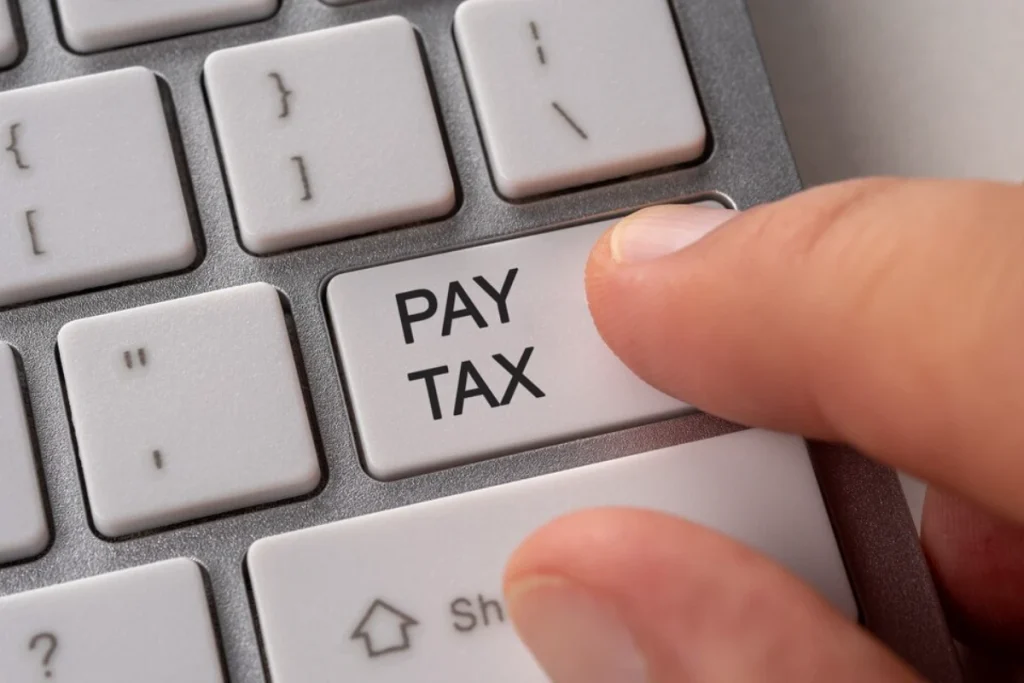Handling taxes as a freelancer can be a bit intimidating, especially if you’re used to having taxes automatically taken out of your paycheck at a regular job. Now, it’s on you to keep track of your earnings, set aside money for taxes, and file everything yourself. But don’t worry, it’s more manageable than it seems when you get the hang of the basics. SCL Tax Services experts are here to help you gain the confidence to manage your freelancer taxes each year. In this article, we’ll cover everything you need to know, from the forms you’ll need to file to tips for staying organized, and then you’ll be ready to tackle the freelance taxing process like a tax professional would.

Before diving into the process of doing taxes as a freelancer and looking at SCL tax accountants helpful tips, it’s a good idea to understand why freelance taxes can be tricky in the first place and what challenges you may have to deal with. Freelancing taxes are challenging because of:
Freelancers have different tax obligations than regular employees. You need to pay both income tax and self-employment tax, which covers Social Security and Medicare. This can be confusing, especially when figuring out how much to set aside for taxes. It’s important to learn about these obligations early on so you can plan effectively, and this can be time consuming and difficult.
Managing deductions can be tricky for freelancers because knowing which expenses qualify isn’t always straightforward. While you can deduct costs like home office expenses, supplies, and travel to reduce taxable income, it’s crucial to keep accurate records, but staying organized with your receipts can be overwhelming and bother you if you haven’t done it correctly.
Freelancers can face a greater risk of IRS audits because of the complexity of their tax returns. The nature of freelance work often involves various income streams and deductions, which can raise red flags for the IRS and Keeping detailed records of all income and expenses is a challenging, crucial thing you need to do for defending against potential audits.

Now that you understand some of the challenges you can face while doing freelancer taxes, it is time to start our journey towards the process itself and all the knowledge you will need to do your taxes as a freelancer.
As a freelancer, you are considered self-employed, which means you will file taxes like a business owner. Your main responsibilities include:
With your tax responsibilities in mind, the next step is knowing the forms you’ll need to file to meet these obligations.
Freelancers use several forms to report income and deductions, such as:
Form 1040: This is the standard income tax form.
Schedule C (Form 1040): Use this form to report your business income and expenses.
Form 1099-NEC: If you earn $600 or more from a client, you will need to file this form to report your income.
Schedule SE (Form 1040): This is used to calculate your self-employment tax.
Filing the right forms is crucial, but we still have work to do for our freelance taxing process. Freelancers also need to make sure they’re paying their taxes throughout the year, not just at tax time. This is where estimated taxes come into play.

Another important part to pay attention to is estimated taxes because freelancers don’t have employers withholding taxes. You’ll need to make quarterly estimated tax payments if you expect to owe $1,000 or more in taxes for the year. These payments cover both income tax and self-employment tax. Missing them could lead to penalties, so it’s essential to keep track.
Now that you know when and how to pay your taxes, let’s look at two critical pieces of our puzzle: tracking your expenses and staying organized with your records.
Proper record-keeping is crucial for freelancers to minimize their tax burden. Organizing receipts, invoices, and bank statements can help when filing and ensure you’re maximizing deductions. Here are common deductible expenses you need to know:
Home office expenses: Deduct a portion of rent, mortgage, and utilities if you work from home.
Equipment and supplies: Computers, software, and office supplies can be written off.
Travel expenses: Deduct costs associated with business travel.
Health insurance premiums: You may be able to deduct health insurance premiums if you’re paying for your own insurance.
While staying organized and knowing the rules are important, taxes can still be overwhelming for freelancers. That’s where hiring a tax professional can make a huge difference.
For freelancers, handling taxes can quickly become overwhelming, but hiring a professional can make all the difference. With SCL Tax Services, you get reliable Bronx tax services that cover everything from tax preparation to business taxes and bookkeeping services. Freelancers often juggle multiple clients and income streams, making tax time even more complicated. Having a tax expert who specializes in tax accounting ensures you don’t miss out on important deductions and that your quarterly tax payments are properly managed. Whether you need help organizing your expenses or filing your taxes, calling SCL tax services in and near the Bronx can take a huge burden off your shoulders. Not only does this save you time, but it also reduces the risk of errors that could cost you down the line. By working with professionals like SCL, you can focus more on your freelance work while knowing your taxes are in good hands.
Make the freelance taxes easier this time! Contact SCL Tax Services today and let our tax accounting team take care of your freelance tax needs!
Freelancers are responsible for paying both federal income tax and self-employment tax, which covers Social Security and Medicare. State and local taxes may also apply depending on where you live.
Freelancers typically need to file Form 1040, along with Schedule C to report business income and expenses. If you earn $600 or more from a client, you’ll also need to file Form 1099-NEC.
Common deductions for Freelancers include home office expenses, equipment, supplies, business travel, and health insurance premiums if you’re self-insured.
A tax professional can help freelancers with tax preparation, bookkeeping, and identifying deductions. Tax accounts also can help ensure your quarterly tax payments are accurate and reduce the risk of costly mistakes or audits.
We are here to relieve you of the tax pressure by offering a wide range of Tax Services In & Near Bronx, NY. If you need expert advice or need us to complete your taxes, we will provide it for you. We know you work hard, so we work hard to serve your needs.
Your time is valuable, which is why we are here for you.